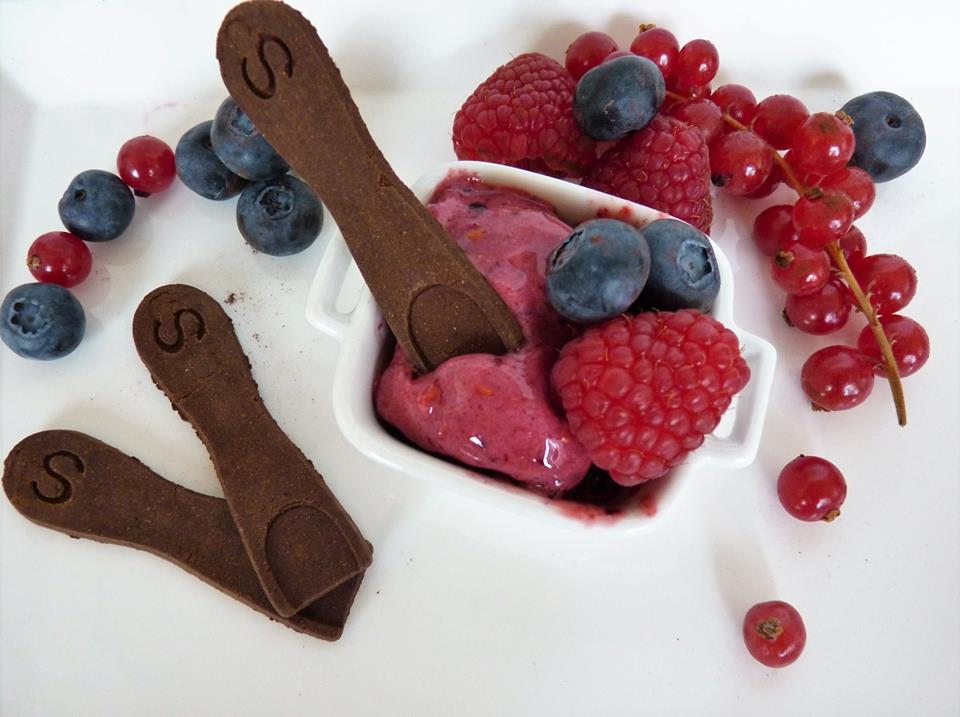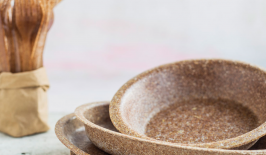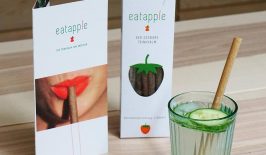Just in time for the start of the season, Spoontainable has come up with a plastic-free alternative to those tiny, “use them for five minutes and then throw them away” spoons that you normally get with your ice-cream.
It was the cause of much celebration among environmental and climate activists when the EU Parliament decided to ban the sale of plastic products for which sustainable alternatives already exist. That includes cotton buds, plastic plates and cutlery. It’s a policy which is urgently needed, especially in Germany – currently Europe’s biggest producer of plastic waste, with around 220 kg of packaging waste per capita per year.
Whether it’s plates made of wheat bran, straws made of apple or cups made of coffee grounds: there are many ideas for sustainable replacements to everyday (unnecessarily) plastic items. And now the startup Spoontainable is offering – just in time for the start of the season – a new alternative for a very specific product: that small plastic spoon that you get with your ice cream. Their spoons are primarily made from the shells of the cocoa bean – and when you’re done with your ice-cream, you can eat them too.
Spoontainable is the brainchild of Stuttgart-based ecopreneurs Amelie Vermeer and Julia Piechotta. And they designed their product to kill two birds with one stone: to reduce the amount of plastic waste in Germany and at the same time, find a practical way of recycling a major waste product from the cocoa manufacturing process.
“The main component of our chocolate-flavoured spoon is the fibres from cocoa shells. When cocoa beans are processed into different food products, those fibres are left over as organic waste,” explain the founders on their website. “We use that waste, which is full of natural flavor and fibre, to make the spoons. Due to the high proportion of cocoa shell fibres, our sustainable spoon naturally tastes like chocolate without us having to add any flavour enhancers”.
A spoon made of chocolate – doesn’t it melt?
The consistency of Spoontainable spoons is more like a biscuit than a chocolate bar. They’re made from a cocoa fibre dough which has been baked, making it strong enough to tackle desserts such as ice cream, frozen yoghurt or pudding and stay solid for at least 60 minutes. Oh, and the spoons are also completely sugar free.
So how sustainable are these spoons really? The spoons are baked, packaged and transported all within Germany. The cocoa fibres, however, come from overseas and aren’t currently being sourced from certified Fair Trade or organic cocoa production sites. The young company is currently working on establishing new cooperations in order to make sure this change.
At a cost of 5 to 8 cents per spoon (depending on the quantity purchased) they’re a little more expensive than their plastic counterparts. But for that slightly higher price, you get a chocolatey treat along with your ice cream, a clear conscience and absolutely no plastic aftertaste.
This is a translation by Marisa Pettit of an original article that originally appeared on RESET’s German-language site.






